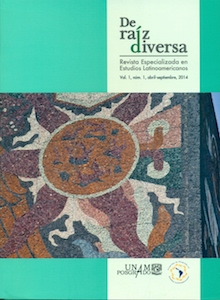Interdisciplinarity, Hybridization and Difference. Some Issues on the Latin America Debate
Main Article Content
Abstract
Currently, interdisciplinarity is not thinkable as a reference to totality, although it remains necessary for social analysis. In accordance to the claim of diff erence, we have to think totality in terms of disciplinary fortress and as a key for a subsequent hybridization according to those disciplines which claims for diff erence. For that very reason, there’s no pertinence today in the idea of “interdisciplinary produced by a single subjetc” —very common among the Cultural Studies—, as well as the unidirectionality of technocraticentrepreneurial interdisciplinary (Gibbons). We advocated in this essay that is highly more interesting those work that combine disciplines, or raise itself from the characteristics of the other (for example, the Psychology of Political Science and so on).
Downloads
Article Details
Citas en Dimensions Service

De Raíz Diversa por Universidad Nacional Autónoma de México se distribuye bajo una Licencia Creative Commons Atribución-NoComercial-SinDerivadas 4.0 Internacional.
